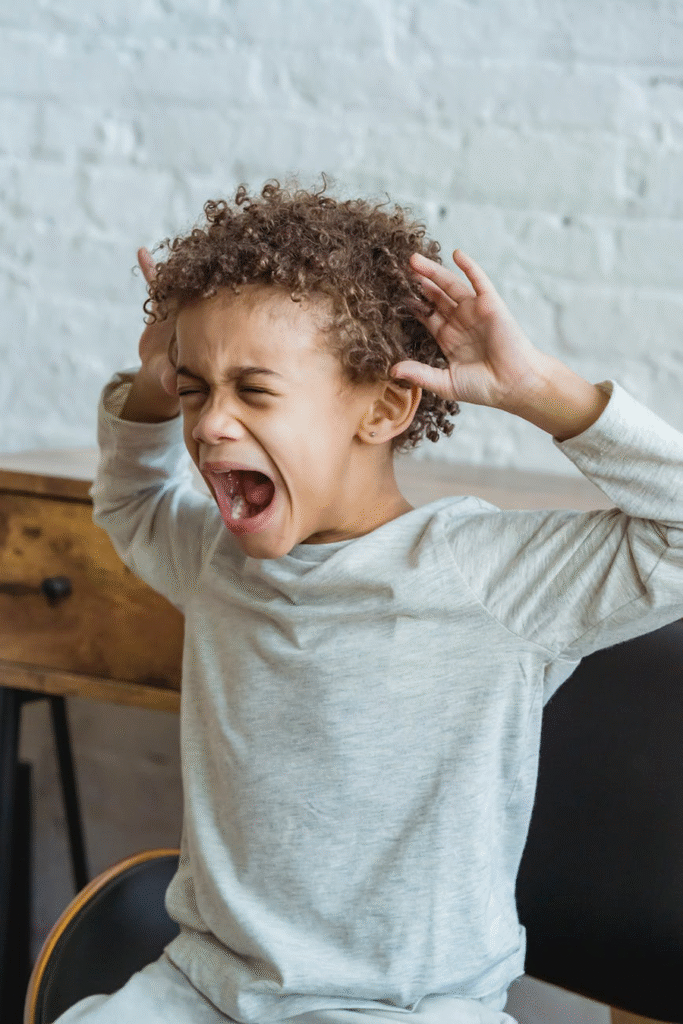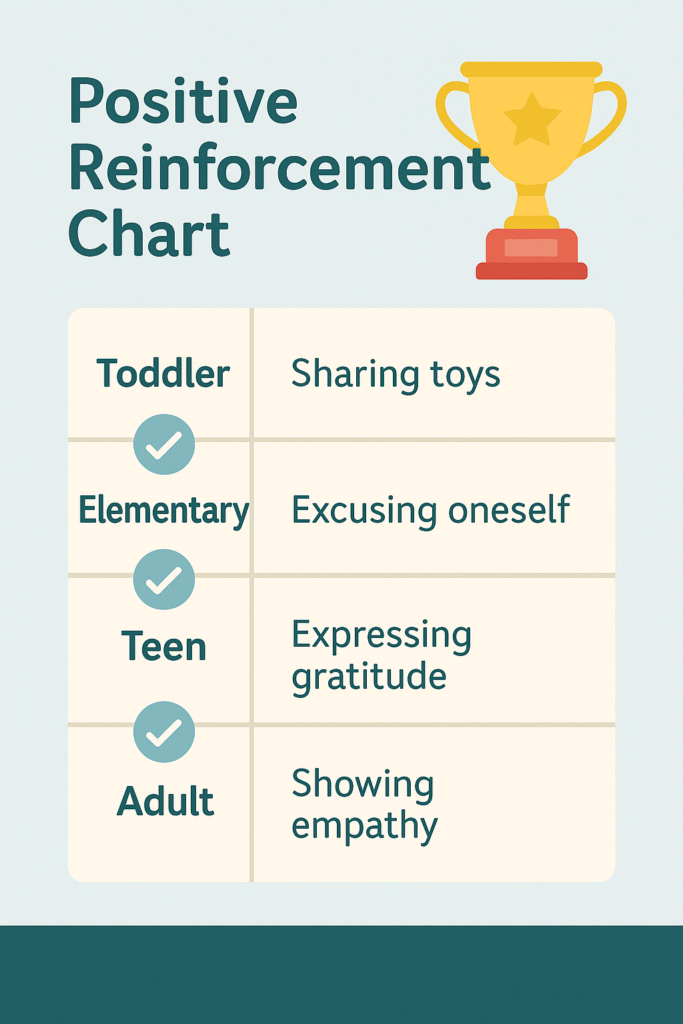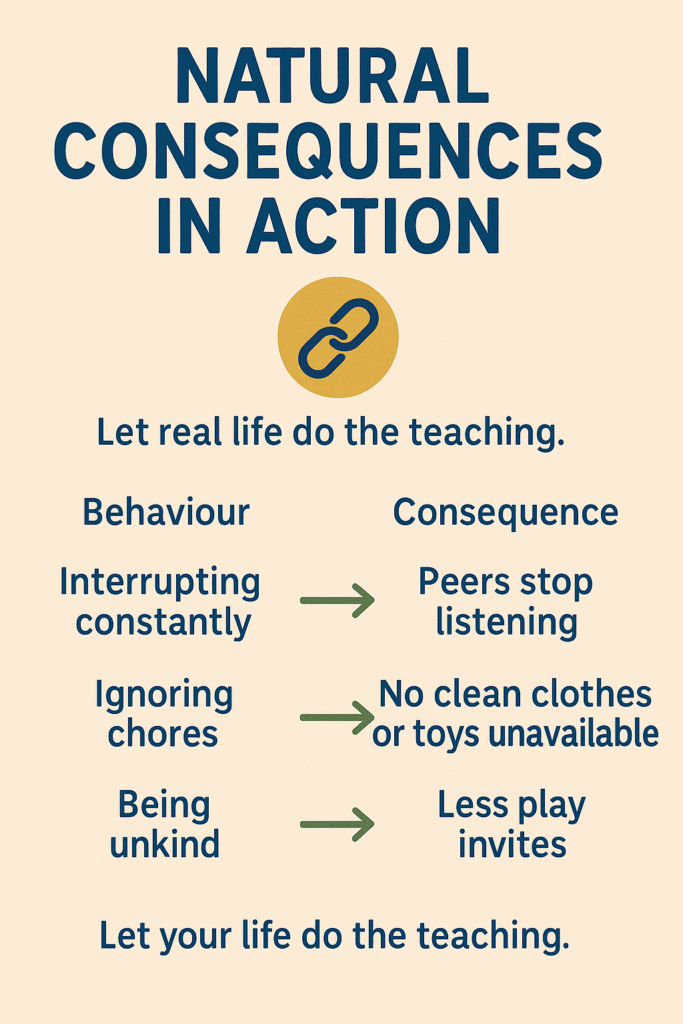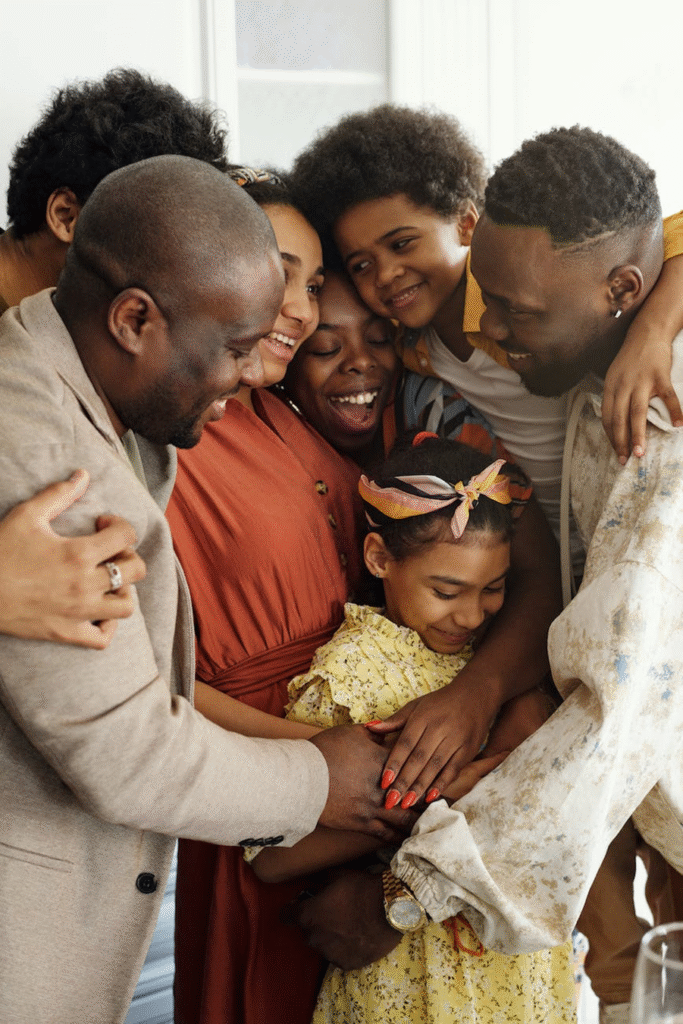How to Raise Polite Children: 7 Proven Strategies
That moment when your kid interrupts adult conversation for the fifteenth time today, or when they grab something without saying “please” – again. Sound familiar? As a father of six kids ranging from 6 to 20 years old, I’ve navigated every imaginable scenario of childhood rudeness. The good news? You absolutely can teach children respect and transform challenging behaviors into genuine politeness.
After two decades of parenting and countless family dinners that looked more like diplomatic negotiations, I’ve discovered what actually works. These aren’t theoretical parenting tips – they’re battle-tested strategies from someone who’s raised five daughters and one son while maintaining our sanity (mostly).
Let me share the proven methods that helped our family create respectful children who others actually enjoy being around. If you’re struggling with family harmony with teenagers, these strategies work across all age groups.
Why Learning How to Raise Polite Children Matters More Than Ever 🌟
In today’s digital world, basic courtesy seems endangered. Kids grow up watching screens instead of faces, texting instead of talking. But here’s what I’ve learned: polite children aren’t born that way – they’re carefully cultivated through consistent, intentional parenting.
The benefits extend far beyond avoiding embarrassment at restaurants. Children with strong social skills development perform better academically, form healthier relationships, and develop confidence that serves them throughout life. When you teach children respect, you’re giving them tools for success that no smartphone app can provide.
Research consistently shows that children who learn proper etiquette early demonstrate better emotional regulation and stronger peer relationships. According to the American Academy of Pediatrics, social skills development directly impacts academic success and mental health outcomes. It’s not about creating robots who say “yes ma’am” – it’s about raising humans who genuinely care about others’ feelings. This connects directly to building healthy family routines that support character development.
The Foundation: Understanding Why Kids Act Out
Before diving into solutions, let’s address the elephant in the room. Most “rude” behavior isn’t intentional defiance – it’s kids being kids. They’re still developing impulse control, learning social cues, and figuring out how the world works.
My youngest, Brayden, went through a phase where he’d interrupt every conversation. Not because he was disrespectful, but because waiting felt impossible at age four. Understanding this developmental reality changes how we approach children’s behavior modification.
When we label kids as “jerks,” we miss the real issue. They need guidance, not judgment. The Centers for Disease Control and Prevention emphasizes that positive parenting techniques are most effective for long-term behavior change. For children with special needs, like those with ADHD, this becomes even more crucial – check out our guide on how to discipline ADHD children for specialized approaches.
Strategy 1: The Quest for Kindness Begins at Home 💝
Every superhero needs an origin story, and your child’s journey toward politeness starts with understanding kindness. I’ve found that teaching empathy to children works best through real-world experiences, not lectures.

In our house, we practice the “shoe-stepping” exercise. When someone’s having a tough day, we literally ask the kids to imagine walking in that person’s shoes. What might they be feeling? What would help them feel better?
Last month, our neighbor was struggling with a family emergency. Instead of just telling the kids to “be nice,” we brainstormed specific ways to help. Melody (15) suggested making cookies. Gabrielle (13) offered to walk their dog. These concrete acts of service teach respectful children habits that last a lifetime.
The key is making kindness active, not passive. Read books featuring diverse characters facing different challenges. Volunteer as a family at local organizations. When children see kindness in action, they’re more likely to embody it themselves.
Making Empathy Practical
Start small with everyday situations. When a sibling is upset, instead of saying “be nice,” try: “What do you think Kaelyn is feeling right now? How could we help her feel better?” This approach helps children develop emotional intelligence naturally.
We also practice gratitude regularly. Not the forced “what are you thankful for” at dinner, but genuine appreciation for specific actions. “Thank you for helping your sister reach that book” teaches children to notice and acknowledge kindness in others.
Building strong family communication skills supports these empathy-building exercises and creates lasting positive change.
Strategy 2: Mastering Table Manners Without the Battle ⚔️
Ah, family dinner time – where dreams of peaceful meals go to die. With six kids, our dining room has seen everything from food fights to philosophical debates about why vegetables exist. But here’s what I’ve learned: table manners for children don’t have to involve constant correction.
The secret? Make it engaging rather than punitive. We created “Manner Heroes” – a game where each family member gets points for demonstrating good table etiquette. Points for keeping elbows off the table, using utensils properly, and – the ultimate challenge – finishing conversations before taking bites.

According to Harvard Health Publishing, family meals provide crucial opportunities for social development and communication skills. Instead of constantly saying “don’t do that,” we focus on what they should do. “Remember to close your mouth while chewing” sounds less harsh than “stop chewing like a cow.” Small language changes create big attitude shifts.
The Napkin Ninja Technique
One of our most successful innovations was the “Napkin Ninja” game. Kids earn points for discreetly wiping their mouths without being reminded. It transformed napkin usage from a chore into a stealth mission. Suddenly, they’re paying attention to their faces during meals.
We also implemented “Pass the Politeness” – where asking for something nicely earns recognition. “Could you please pass the salt?” gets a family cheer. Sounds silly? Maybe. Does it work? Absolutely.
Family meal etiquette improves when kids feel like participants rather than prisoners. Give them ownership in creating meal rules. Let them suggest consequences for forgotten manners. When they help establish expectations, they’re more likely to meet them.
For more comprehensive strategies on organizing family meals and communication, explore our family planning and organization tips that complement these etiquette lessons.
Strategy 3: The Art of Gracious Greetings and Social Skills 🤝
Teaching social skills development starts with basic greetings, but it extends far beyond “hello” and “goodbye.” Real social competence involves reading social cues, adjusting behavior to different situations, and genuinely connecting with others.
We practice greetings with stuffed animals first (yes, even teenagers benefit from this). Make eye contact with Mr. Bear. Give a firm handshake to Princess Fluffy. It sounds ridiculous, but low-stakes practice builds confidence for real interactions.
Role-playing different scenarios prepares kids for various social situations. The Child Mind Institute recommends structured practice for developing social competence. How do you greet your teacher versus your grandmother? What’s appropriate at a friend’s house versus a formal event? These distinctions matter, and respectful children learn them through repeated practice.
Beyond Basic Politeness
Advanced social skills include knowing when to speak up and when to listen. We teach our kids the “traffic light” method: Green means go ahead and share your thoughts, yellow means proceed with caution, red means stop and listen.
At family gatherings, I’ve watched our kids naturally adjust their conversation style for different relatives. They’ve learned that Great-Aunt Martha prefers quiet conversations about books, while Uncle Joe loves animated discussions about sports. This adaptability serves them well in all relationships.
Teaching children respect means helping them understand that different situations require different approaches. The respect you show a teacher differs from how you interact with siblings, but both deserve consideration and kindness.
Building these social skills connects to broader life preparation – our guide on teaching children practical life skills covers how to raise polite children alongside other essential abilities. For additional activities that build character, explore our family-friendly bonding activities that reinforce respectful behavior.
Strategy 4: The Power of Positive Reinforcement That Actually Works ⭐
Forget sticker charts that lose their appeal after a week. Real positive parenting techniques create intrinsic motivation rather than external rewards. The goal is raising children who choose kindness because it feels good, not because they get prizes.

Our “Politeness Jar” evolved beyond simple rewards. When someone demonstrates exceptional manners, the whole family benefits. Jar fills up? Family movie night. Empty jar? Everyone helps refill it through acts of service.
This system teaches that individual choices affect the entire family. When Natalie (20) holds the door for strangers, it contributes to our family culture. When Brayden (6) remembers to say “thank you,” he’s participating in something bigger than himself.
Research from Psychology Today demonstrates that positive reinforcement creates lasting behavioral changes more effectively than punishment-based approaches.

Recognition Over Rewards
Instead of material rewards, focus on specific recognition. “I noticed how you waited patiently while I finished my phone call” acknowledges the behavior and the effort it required. This type of acknowledgment builds internal motivation.
We also celebrate “Manner Moments” – times when kids demonstrate exceptional children’s behavior modification without prompting. These celebrations don’t involve prizes, just family recognition of growth and effort.
Teaching empathy to children works best when they see how their actions affect others. Point out when their politeness makes someone smile. Help them connect their choices to positive outcomes in relationships.
For families looking to strengthen these connections, our insights on creating lasting family traditions provide additional ways to reinforce respectful behavior through meaningful experiences.
Strategy 5: Transforming Mistakes into Learning Gold 🏆
Every superhero faces setbacks, and every child makes mistakes. The difference between raising respectful children and inadvertently creating defensive ones lies in how we handle these inevitable moments.
When my daughter Kaelyn (17) forgot to thank her teacher for extra help, we didn’t lecture about ingratitude. Instead, we talked about how teachers feel when their efforts go unacknowledged. She decided to write a thank-you note the next day – not because I demanded it, but because she understood the impact.
Children’s behavior modification works best when kids understand the “why” behind expectations. Instead of arbitrary rules, help them see how their actions affect others’ feelings and experiences.
The Apology That Teaches
Real apologies include three elements: acknowledgment of the mistake, understanding of how it affected others, and commitment to different choices. “I’m sorry I interrupted you. I know that probably made you feel like your words weren’t important. Next time I’ll wait for you to finish.”
This approach teaches respectful children to take responsibility while developing empathy. They learn that apologies aren’t just words – they’re promises to do better.
We practice this with sibling conflicts constantly. Rather than forcing empty apologies, we help kids understand how their actions affected their siblings and brainstorm better approaches for next time.
Understanding effective sibling conflict resolution helps parents navigate these teaching moments with confidence and consistency.

Strategy 6: Leading by Example (The Hardest Part) 👨👩👧👦
Here’s the uncomfortable truth: our kids are always watching. They notice when we interrupt each other, when we’re impatient with service workers, when we forget to say “please” and “thank you.” Teaching children respect starts with modeling it consistently.
After twenty-plus years of marriage and parenting, my wife and I still catch ourselves slipping into bad habits. The difference now is that we acknowledge these mistakes in front of our kids. “I should have said ‘please’ when I asked for that favor. Mom deserves the same courtesy I expect from you.”
This vulnerability actually strengthens our family meal etiquette and overall family culture. Kids see that everyone struggles with consistency, and everyone benefits from reminders and improvements.
The Ripple Effect
When parents consistently demonstrate polite children behaviors, kids absorb these patterns naturally. They watch how we handle frustration, how we treat strangers, how we navigate disagreements.
Our middle school teacher wife brings home stories about students whose family respect (or lack thereof) shows up immediately in classroom interactions. Kids who come from homes where adults treat each other kindly tend to extend that kindness to teachers and peers.
Social skills development happens through observation and practice. When children see parents genuinely caring about others’ feelings, they learn that consideration isn’t just a rule – it’s a way of life.
For parents seeking guidance on maintaining consistency while managing busy family schedules, our time-saving strategies for large families offer practical solutions that support character development.
Strategy 7: Age-Appropriate Expectations and Consistency 📏
Expecting a six-year-old to demonstrate the same table manners for children as a teenager sets everyone up for frustration. Effective positive parenting techniques adjust expectations while maintaining core principles.
Brayden (6) is still learning to remember “please” and “thank you” without reminders. That’s developmentally normal. Melody (15) should be automatically considering others’ feelings in her choices. Both are learning respect, but at different levels.
The key is consistency within age-appropriate boundaries. The expectation of kindness never changes, but how we support each child in achieving it varies based on their developmental stage and individual needs.
Building Habits Gradually
Start with one or two core expectations and build from there. Maybe this month focuses on saying “please” and “thank you.” Next month adds interruption rules. Gradual building creates lasting children’s behavior modification rather than overwhelming kids with too many rules.
We found that involving older siblings in teaching younger ones reinforces lessons for everyone. When Allyson (19) helps Brayden practice greeting guests, she’s reminded of the importance herself while he gets personalized instruction.
Teaching empathy to children happens differently at each stage. Toddlers learn through simple cause and effect (“When you hug sister, she smiles”). Teenagers engage with complex discussions about social justice and treating others with dignity.
The American Psychological Association provides research-backed guidance on age-appropriate expectations and developmental milestones for social behavior.
Creating Your Family’s Politeness Culture 🏠
Every family develops its own culture around respect and kindness. Some emphasize formal manners, others focus on authentic connection. The key is intentionality – deciding what values matter most and consistently reinforcing them.
In our home, we prioritize genuine care over perfect protocol. I’d rather have a child who notices when someone needs help than one who executes flawless table manners while ignoring others’ struggles.
That said, basic courtesy matters because it demonstrates care for others. Respectful children understand that saying “excuse me” when passing someone isn’t about following rules – it’s about acknowledging that person’s presence and space.
Family Meetings That Work
Monthly family meetings help us adjust our approach as kids grow and situations change. We discuss what’s working, what isn’t, and how we can better support each other in showing respect.
These meetings aren’t lectures – they’re collaborative problem-solving sessions. Kids often suggest better solutions than parents devise alone. When they help create family expectations, they’re more invested in meeting them.

Family meal etiquette improves when everyone has input into establishing mealtime expectations. Let kids suggest conversation topics, seating arrangements, or special traditions that make meals more enjoyable for everyone.
These collaborative approaches work especially well when dealing with challenging behaviors – our insights on disciplining children effectively provide additional strategies for maintaining respect while addressing difficult moments. For meal-specific challenges, explore our easy family dinner solutions that reduce stress and promote positive mealtime interactions.
Navigating Setbacks and Staying Consistent 💪
Some days, despite your best efforts, everyone seems to forget their manners. Siblings bicker, kids interrupt, and parents lose patience. These moments don’t indicate failure – they indicate humanity.
During particularly challenging phases (hello, teenage years), we’ve learned to focus on connection over correction. Sometimes a child’s “rudeness” actually signals deeper needs: attention, understanding, or support during difficult transitions.
Teaching children respect requires patience with the process. Skills develop gradually, with plenty of backward steps mixed with forward progress. Celebrating small improvements maintains momentum during difficult phases.
When Nothing Seems to Work
If traditional approaches aren’t effective, consider underlying factors. Is your child struggling with attention issues, social anxiety, or processing differences? Sometimes what looks like deliberate rudeness reflects genuine challenges that need different support.
We’ve learned to distinguish between willful defiance and developmental struggles. Kids with ADHD might need different strategies for remembering social expectations. Children with autism might require more explicit instruction about social cues.
Children’s behavior modification works best when it addresses root causes rather than just surface behaviors. If a child consistently struggles with specific expectations, exploring why often reveals more effective approaches.
The Long-Term Vision: Raising Future Leaders 🌱
The ultimate goal isn’t perfect behavior – it’s raising children who genuinely care about others and know how to express that care appropriately. Polite children grow into adults who build stronger relationships, succeed in professional environments, and contribute positively to their communities.
Our oldest daughters are now young adults, and watching them navigate college and career relationships confirms that early investment in social skills development pays lifelong dividends. They naturally consider others’ perspectives, communicate respectfully during conflicts, and create positive environments wherever they go.
This isn’t about creating people-pleasers who sacrifice their own needs. It’s about raising individuals who understand that healthy relationships require mutual respect and consideration.
The Ripple Effect in Society
When families prioritize teaching empathy to children, the benefits extend far beyond individual households. Communities become kinder, schools become more collaborative, and future workplaces become more respectful.
Every “please” and “thank you” your child learns contributes to a larger cultural shift toward consideration and kindness. Every time they choose patience over impatience, they’re modeling better ways of being for their peers.
Respectful children become adults who mentor others, lead with integrity, and create positive change in their spheres of influence. The manners you teach today shape the leaders of tomorrow.
Your Next Steps: Implementing Change Gradually 🚀
Start where you are, with what you have. Choose one area – maybe family meal etiquette or greeting practices – and focus there for a month. Consistency in small areas builds momentum for broader changes.

Remember that teaching children respect is a marathon, not a sprint. Some days will feel more successful than others. The key is maintaining long-term vision while celebrating small daily victories.
Include your children in creating family expectations around respect and kindness. When they help establish the standards, they’re more likely to embrace and maintain them.
Resources for Continued Growth
Consider connecting with other families who share similar values. Positive parenting techniques work better when you have community support and shared accountability.
Books, online resources, and parenting classes can provide additional strategies and encouragement. The key is finding approaches that align with your family’s values and adapting them to your unique circumstances.
Social skills development continues throughout childhood and adolescence. Stay curious about your children’s changing needs and adjust your approach accordingly.
For families dealing with particularly challenging phases, our resources on raising children with strong morals and creating positive family unity provide additional support for how to raise polite children within a strong family foundation.
Conclusion: The Journey Continues
Raising respectful children isn’t about achieving perfection – it’s about creating a family culture where kindness matters, mistakes become learning opportunities, and everyone grows together.
As a father of six, I can tell you that no strategy works perfectly all the time. Kids will still interrupt, forget their manners, and test boundaries. But with consistent, loving guidance, they develop into people others genuinely enjoy being around.
The world needs more kindness, more consideration, and more genuine respect between people. It starts in our homes, with our daily choices, and with our commitment to teaching empathy to children who will shape tomorrow’s society.
Your children are watching, learning, and growing. Every patient moment you invest in children’s behavior modification contributes to raising humans who make the world a little bit brighter.
And maybe, just maybe, they’ll even remember to say “please” when they want something – most of the time! 😊
God Bless
🌐 Explore More from My Family of Blogs
If you found this article helpful, you might also enjoy what I’m sharing across my other platforms. Each one is designed to uplift, equip, and inspire families in real, practical ways:
🏠 Mountains Will Move
Faith-based encouragement for everyday families. I dive into prayer, parenting, purpose, and pressing through life’s hardest seasons with Jesus at the center.
👉 Visit Mountains Will Move »
🔎 Everyday Exposed
My no-filter truth hub—where I tackle myths, challenge misleading narratives, and bring clarity to the conversations that matter most.
👉 Visit Everyday Exposed »
Whether you’re diving deeper into pet care, faith, or uncovering truth in today’s noisy world, I hope you’ll journey with me.
Thank you for being part of the journey. God Bless you and your family. 🙏

